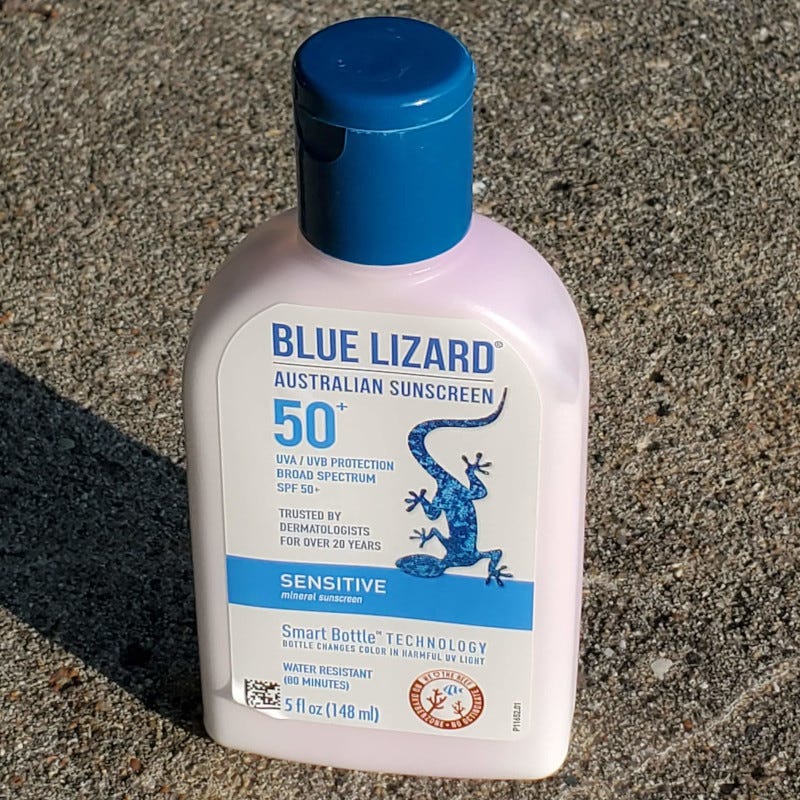When should you stop applying sunscreen?
On Baz Luhrmann, T-cells, and how long it takes for prudent protections to pay off
"Wear sunscreen" is advice so enduring and useful that Baz Luhrmann was able to convert it from a Chicago Tribune opinion column into a hit song. "Trust me on the sunscreen", wrote Mary Schmich, and she was right: It's a low-cost way to reduce the odds of cancers like melanoma.
■ Sunscreen isn't free, though, and it takes effort (even if not all that much) to apply it. And it isn't always apparent to the one applying it why it matters. The consequences are usually in the future, sometimes even decades away, but the costs are immediate. Even at the beach on a bright summer day, it can seem tedious and tiresome to keep applying more protection.
■ Skin performs a unique function for the body: It provides the barrier between the outside world and everything inside. T-cells in the bloodstream may go on the offensive, but skin is defensive in nature. When punctured, scorched, or gouged, it can heal itself -- given enough relief from new damage.
■ Those who ask seemingly open-ended questions like "When does US aid to Ukraine end?" deserve an honest answer in the form of a different question: "When do you stop applying sunscreen?"
■ Ukraine is performing a geopolitical role for American allies across Europe that is analogous to skin: It is holding back external damage, and doing a remarkable job. It isn't overstatement to worry about the Baltic countries, Poland, Slovakia, and others that are close to the source of the aggression.
■ But as long as the source of the damage remains intense, it would be premature to declare an arbitrary end to the protection. One doesn't plan to stop applying sunscreen at precisely 1:15 in the afternoon; as long as the UV rays keep coming, the protection must keep going on. Nor does one say "I shall use sunscreen until I am 27, and no more after that."
■ The danger sets the agenda. The enemy gets a vote, as military leaders are often fond of saying. And bad things may still happen, even with the most generous protective barriers in place. The costs of that protection can be immediate and real, and the benefits may be far away and difficult to envision. But prudent protections are often like that.



